|
By Charlotte Waldmeir (@cwaldmeir), Content Strategy for Sente Advisory (@Sente_Advisory Back in October, Sente along with Helsinki-based partner, LandInChicago, ran a 12-week market entry program designed exclusively to bring Finnish growth companies, like Redland, Qentinel and NOOA, to the US market. Their entry point - Chicago. Their homebase - 1871. I recently got the chance to catch up with Jonne Hirvonen - VP of Sales of the innovative digital agency, Redland, that [now] brings Scandinavian design principles to small/medium sized enterprises across the US. During our chat, Jonne discusses his decision to bring Redland to Chicago, who he networked with along the way and how he thinks Silicon Valley and Chicago compare. Charlotte [C]: How did the Finnish design startup, Redland, end up in Chicago? Jonne [J]: We have been involved in the LandinChicago acceleration program since Autumn 2016. The idea behind the program is to support Finnish companies to enter the US market, and especially, to “land in Chicago.” The decision whether or not Redland should participate was an easy one and Tekes, the Finnish organization that funds research, development and internationalization, gave us another boost by funding our project. As far as bringing our company to the US, we know from experience that design can function as a gateway to projects in technology and marketing service as customers often appreciate a one-stop shop. Due to this, our US offering is introduced on our website www.redland.agency, and supported locally by social media. [C]:Do you feel that the 8-week preperation period in your home country helped you get ready for your experience in Chicago? J: Yes. Although it was a lot of work. We had to first get focused on what we were going to sell in the US (because we offer a wide variety of services in Finland). Plus, we needed to create a solid financial plan so we could justify our market entry with our management. Finally we went through several iterations of our pitch - and got lots of practice - because we even landed in Chicago. C: What do you feel like you achieved coming to Chicago? J: While in Chicago, we met a number of different companies, entrepreneurs and partners in Chicago as well as Silicon Valley. Although we are a new company in the US, we came to Chicago with a clear story and offering and it has been well received. Also, being a part of the big 1871 startup hub and cooperating closely with Sente Advisory has helped a ton. Not to mention, there is a lot going on in Chicago and meetup culture is strong here. For example, at the end of our very first day on October 10th, we participated in an event called “Introduction to Chicago Design Community” hosted by advertising agency Leo Burnett. The idea of the event was to help young designers expand their network and help them move forward in their careers. It was interesting to realize that the same challenges and features affect design both in the US and in Finland. 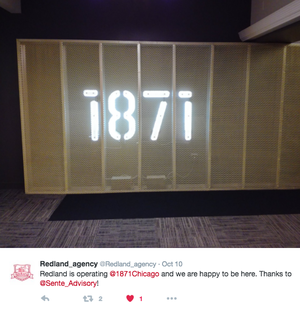 C: Tell me more about your experience being based out of 1871 Chicago. What was that like? J: 1871 is the ‘center of technology and entrepreneurship in Chicago’ and hosts more than 500 companies ranging from early stage startups to large enterprises and universities. During our first week there, we attended the event TGIW (Thank God It's Wednesday) that was sponsored by Microsoft, and presented Redland along with the other LandInChicago companies, Qentinel and NOOA. As a member of 1871, we got access to its many member workshops on various topics that we participated in during the framework of our schedule. The workshops discuss topics that growth companies find interesting, such as sales, business development, negotiation skills and marketing. Another interesting service at 1871 is the ‘office hours’ and mentoring. There are more than 500 mentors actively operating in the 1871 community. Mentors are experienced professionals in their own field and they bring a lot of benefit to the community. We found these meetings useful as we got to expand our network and reach decision makers who would otherwise have been difficult to contact. - Related - .C: You mentioned going to different meetups, startup events. What were some of the biggest takeaways you had while at these events? J: Most important observation is that “design know-how” is increasingly in demand. On 12th of October, design and innovation consultancy, Fjord, organized a meet-up on the topic “Design as a Business Strategy.” At the event, Design Director, Tim Irvine, stressed the importance of design in the development of business strategy and implementation. In terms of this, Redland is on the right track, due to our investments in the development of design expertise and expansion of our own team. One sign of the importance of the matter is the fact that IBM is recruiting 5,000 designers in the future. Digitalization and large strategic projects therefore require a lot of engineering expertise. 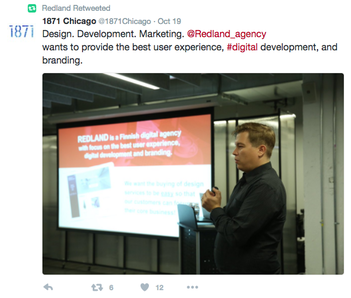 C: What was the Demo Day like at 1871? J: On 19th of October, at 1871, we organized a Demo Day for the LandinChicago companies. The event was opened by the 1871 CEO Howard Tullman, who stressed the importance of entrepreneurs and how they play a major role in the well-being of the entire Chicago area. The event was accompanied by stakeholders, investors and companies involved in 1871. Together with Qentinel and NOOA, we held presentations and introduced our activities and services. Finnish serial entrepreneur Sampo Parkkinen, Honorary Consul of Finland, Olavi Göös, and Head of Region Americas, Tomi Rauste. from Finpro were present at a panel discussion. The contacts made in the event will be useful in the future because through our networks we will receive a lot of benefit to our operations and will receive the opportunity to discuss with a variety of different partners. C: While in the states, you also headed west to have meetings in the San Francisco/Palo Alto/Silicon Valley area. How was it? J: Because some of our meetings were held in Palo Alto, we got acquainted with morning traffic jams on highway 101 and 280. Compared to San Francisco, Palo Alto is a really clean and peaceful place. In terms of Silicon Valley, it hosts a unique community of companies funded by numerous risk investors and is home to five high quality universities, including the famous Stanford University. C: So how does Silicon Valley compare to Chicago in your opinion? J: From the perspective of living and business, the Silicon Valley area is quite expensive compared to the Chicago area that we are already experienced in. Competition for talent in Silicon Valley is fierce, which is reflected in the wages that have risen to a relatively high level. Living is quite expensive and, for example, in Palo Alto, renting a detached house of 100 sqm house costs around 5,000 bucks a month plus other expenses. Living costs in Chicago are only half of the costs in Silicon Valley and even the food is cheaper. When it comes to corporate culture, the pace in Silicon Valley is tighter than in Chicago. This is a good thing from our point of view, as things progress at a brisk pace. We were also happy to realize that people found our company and its offering interesting. I would be interested to see the same level of interest towards new partners and ways of working also in Finland, to avoid getting stuck in the present or even worse, in the past. C: What are next steps for Redland after going through the LandInChicago program? J: First and foremost, the LandInChicago program made it possible for Redland to create a plan towards internationalization. Although some of the issues were familiar to us, having an international partner gave us a clear, local viewpoint on how to do things and bring Redland to market in the US. At the moment we are going through the learnings of this second phase and will make the necessary repairs to proceed to the third stage which consists of moving to the US market in a manner suitable for Redland. You can learn more about Redland by visiting their website and by following them here:
0 Comments
Why International Startups Should Choose Chicago As Their Entry Point Into The U.S. Market10/14/2016 By Charlotte Waldmeir (@cwaldmeir), Content Strategy for Sente Advisory (@Sente_Advisory) Chicago has made a steady climb as one of the fastest growing startup ecosystems in the world. Since 2012, the city made a nice hop skip and a jump from #10 to #7 in its ranking and is just getting started. According to INC 5000’s list of top cities for fast growing companies, Chicago is home to 104 of America’s private companies plus a total of 37 Fortune 500 companies like Boeing, State Farm and most recently, Kraft Heinz Co.. With a central location, affordable living options and quick Uber from two of the world’s major airports, Chicago serves more than deep-dish pizza. “Chicago is a fast growing startup hub with a long and remarkably strong technology innovation heritage” says Serhat Cicekoglu, Founder of the international startup accelerator, Sente Advisory. “With its access to a very large base of customers in close proximity compared to other ecosystems, Chicago gives startups from overseas a great opportunity to test their growth hypothesis.” That “strong innovative heritage” Serhat mentioned is more than meatpacking, skyscrapers and the wireless remote control (you’re welcome). Chicago is home to one of the largest innovative hubs in the world - 1871. Every day, over 400 early-stage high-growth digital startups set up shop on the 12th and 13th floor of Chicago’s tech epicenter, the Merchandise Mart, to “test their hypothesis” amongst a city of builders, investors and experts. Since its first breath 4 years ago, the 1871 community has focused much of its attention on fostering global startup collaboration by housing international accelerator Sente Advisory and the 12 week intensive start-up accelerator program LandInChicago - programs that make U.S. market-entry possible. “1871 is proud to host these international companies as they hit the ground running in the U.S. market," said Howard Tullman, CEO of 1871. "We believe that Chicago is the best point of entry into the U.S. market because our ecosystem offers access to customers and capital alike, as well as significant support and mentorship. This cohort represents our commitment to bringing new minds and great talent from all over the world to Chicago, and we congratulate Sente and LandInChicago on their success." After a 6-week boot camp back in Helsinki, LandInChicago’s inaugural cohort of top selected Finnish tech startups - Redland, NOOA & Qentinel - entered into Chicago the same day as the Chicago Marathon to hit the ground running. With 1871 as their starting line into the US market, they will go through a rigorous business development training, shake hands with potential investors and collect advice from their industry’s mentors. Their “Chicago Marathon” finish line: a demo day on Oct 19 hosted at 1871. Despite their sweat and dedication, there's a chance that their choice of starting line could become their achilles heel. So why start in Chicago? For LandInChicago member startup, Qentinel, a software company that combines the robustness of industrial quality management with the agility of the digital work, Chicago is the mecca of quality in the digital age. Qentinel’s Founder, Esko Hannula states, “Chicago and Illinois are home to many great companies that are now leading the fourth industrial revolution. We want to be a part of it. And a program like LandInChicago can save a lot of time and money for a new entrant.” Esko’s right. Just this past September, digital transformation leaders in big-data analytics, the Internet of Things (IIoT) 3D printing, artificial intelligence and other emerging technologies gathered together at the Smart Industry 2016 conference, in Chicago. Those that attended represented GE, Emerson, Siemens, Intel and Uptake Technologies, a Chicago-based predictive analytics Saas platform provider (named Forbes Hottest New Startup in 2015). And again, why the windy-city versus other tech hubs in the U.S.? According to Smart Industry publisher, Tony D’Avino, “Chicago is a natural hub for our annual event, as the most exciting digital-transformation initiatives and the most innovative minds can be found here." Like inside Chicago’s top universities. “Chicago is home to some of the best universities, like University of Chicago and Northwestern, which creates an incredible talent pipeline. Thousands of students each year are looking for internships and full-time positions,” says Senior Director of University of Chicago’s entrepreneurial center, The Polsky Exchange, Kristin Barrett. “They are able to gain experience in entrepreneurship through University of Chicago’s Polsky Center for Entrepreneurship and Innovation and Northwestern's The Garage. University of Illinois Urbana-Champaign also graduates more computer science students each year.” The three universities mentioned above (plus Illinois Institute of Technology, Loyola University Chicago, DeVry University and most recently, DePaul University) all have satellite offices located inside 1871. This kind of access right in one watering hole only helps when looking for top talent to join the team and recruit business advice. And if Chicago-based startups need a break from this force of (windy) nature? Just head southwest to Champaign, Illinois, a city voted by Forbes Magazine as the top best places for business study. Here you can visit UIUC’s Research Park that brings in more and more corporations like Deere and Abbott in each year to work side by side with it’s member startups. “The most successful startup hubs benefit from strong connections to major universities, and Chicago’s got a great advantage there” says University of Chicago Booth Business School graduate and Sente Advisory COO, Gerod Carfantan. “This strong foundation emphasizes Chicago’s analytical rigor and creates invaluable connections between startups, corporations, governments and educational institutions.” A recipe for success when an international startups decides it’s time to scale in the United States. By Megan Colgan (@MegColgan), Content for Sente Advisory (@Sente_Advisory)
Collaboration is key to 1871’s success as an influential and thriving startup incubation platform. To support its over 400 early-stage, high-growth Chicago startups, 1871 is expanding its influence globally. Here are five ways 1871 is attracting more exposure, resources, funding, startups and talent for Chicago via global collaboration. 1. Showcasing its startups abroad In 2015, 1871 teamed up with Toronto-based accelerator INcubes to launch a showcase, called Going Global, of ten companies from Chicago and Toronto to foster expansion internationally between the Canadian or US markets. "It is critical for companies to be globally enabled from the earliest stages of their development in order to be successful in today’s economy. With access to capital, customers and talent, Chicago is the best place for international companies to launch into the US market," Howard Tullman, CEO of 1871, said of the cross-border collaboration. “Going Global was an amazing opportunity to meet with fellow entrepreneurs, investors and senior policy officials from both side of the border,” said Jonah Midanik, founder and CEO of Limelight Platform, a participating startup, in an interview with Betakit. “The cross border connections from this event have already yielded tangible benefits for us.” This is just one example of 1871 fostering relationships with foreign innovation hubs across the globe. ChicagoInno reported that in the past year, 1871 has formalized agreements with incubators in London, Tel Aviv and Mexico City. 2. Attracting globally-renowned speakers and visitors In the last three years, 1871 has built a reputation as Chicago's most high-profile address for exposure to the startup and innovation ecosystem. Dignitaries such as British Prime Minister David Cameron and tech celebrities such as Scott McNealy, Steve Ballmer, Steve Case, Ben Horowitz, Padmasree Warrior, Sheryl Sandberg, Mark Cuban, and Christy Turlington have made special stops at 1871 when in Chicago. Alongside the Illinois Science and Technology Coalition, 1871 hosted the Global Innovation through Science and Technology (GIST) Initiative led by the US Department of State and nonprofit CRDF Global, which aims to build entrepreneurial ecosystems in 54 countries across the Middle East, Turkey, Asia and Africa. It was the first time in the history of the GIST program that the Demo Day had been held outside of Silicon Valley. Whether it is visiting venture capitalists, international leaders, or global policy makers, 1871 has become a must-see spot. Accordingly, the startup community at 1871 reaps the benefits of such a global spotlight. 3. Aligning with foreign affairs think tanks Beyond attracting top leaders directly, 1871 formed a partnership with The Chicago Council on Global Affairs to position the incubator on the front lines of technology and global affairs dialogue. The partnership is an innovative exchange program where each organization shares the prominent visitors they attract annually with the other for interactive exchanges and roundtable discussions. The best part is, 1871’s entrepreneurs are invited to participate. Last year, Former Secretary of State Madeleine Albright met with 1871 community members while she was in the city to address the inaugural Chicago Forum on Global Cities, hosted by The Chicago Council on Global Affairs and the Financial Times. “The Chicago Council on Global Affairs strives to be a driving force in bringing the world to Chicago, and Chicago to the world...” said Ambassador Ivo H. Daalder, President of The Chicago Council on Global Affairs in a press release. “By collaborating with 1871, we’re leveraging the high-tech and entrepreneurial sector that is an important pillar in Chicago’s standing as a global city.” These multidisciplinary and collaborative forums showcase Chicago as a global city and 1871’s startup community as thought leaders about the future innovation economy. 4. Global education partnerships In 2014, 1871 formed a strategic partnership with Pearson, the world’s leading learning company. Pearson has relationships with Chicago Public Schools and Chicago City Colleges, along with many K-12 and higher education institutions around the world. “We think Pearson’s deep experience in the education industry and global reach will be extremely valuable to the startups in our community,” said Tullman in an interview with Edukwest. “We’re committed to addressing some of the biggest challenges in education and believe that partnering with the startup community is vital for stimulating greater innovation in the industry and improving learning outcomes,” said Diana Stepner, VP of Innovation Partnerships and Developer Relations. Pearson collaborates with developers, global startups, and a growing community of innovation partners, such as 1871, RocketSpace, 1776, LearnLaunch, MaRS and Makerversity. This collaboration puts 1871 inside the global innovation learning community and offers connections, a network and resources that can benefit the incubator’s EdTech startups. 5. Housing international startup accelerators In 2015, as an international startup accelerator, Sente Advisory became 1871’s exclusive international program partner. Sente partners with universities, private institutions and investors in emerging entrepreneurial ecosystems to run accelerator programs for growth-stage startups aiming to launching their businesses in the US market by establishing their US footprint in Chicago, with 1871 as its base. Sente preps companies alongside their partners abroad for 8 weeks. Then, Sente brings in the top talent from around the world to the Chicago ecosystem to launch in the US via the 1871 community. In the last two years Sente’s alumni have raised over $10M in funding, generated over $54M in revenue, and are operating in 41 countries to create jobs and deliver solutions. “As the center of Chicago’s entrepreneurial community and the nation’s largest digital startup hub, 1871 is uniquely placed to showcase the abundant resources that allow entrepreneurs from across the globe to come to Chicago and thrive,” Tullman said of the partnership. “We believe Chicago is the premier point of entry to the US market for any international company.” Global collaboration as a competitive edge These are just five examples of varying ways 1871 is gaining an edge for its entrepreneurs and community on the international stage. The leaders of 1871 are continuing to foster ongoing relationships with key international community leaders, public officials, non-profit organizations and major corporations. Check out Sente's here! By Megan Colgan (@MegColgan), Media for Sente Advisory (@Sente_Advisory) How is Chicago’s startup scene measuring up to current investment trends?
Chicago has the highest growth index of all US entrepreneurial ecosystems according to the 2015 Compass Report. A separate 2015 report from investment firm CBRE puts the windy city as the 5th largest and 11th fastest-growing tech market in the country. Adding to that, Chicago is second place on the list of Top Cities for Fast-Growing Companies for the second year in a row with 104 private companies on the Inc. 5000. According to Dow Jones VentureSource, last year Chicago's local companies received $862 million. While it was a top year for Chicago, there is still catching up to do. The receipts elsewhere--New York $5.3 billion, Los Angeles $2.3 billion, Boston $4.1 billion and Seattle $1.2 billion--have quite the leg up on Chicago. What is the new frontier for continued growth? Sente Advisory believes the answer is more international influence. We want Chicago to become the most welcoming place for international startups and talent to land and launch in the U.S. market. International influence Investment trends cited by Inc. include reinventing the services economy, digital currencies, innovative hardware, the internet of things, crowdsourcing, and more. To us at Sente, the most compelling trend Inc. mentions is “going global”. Global companies and global markets are the future. Founders can no longer wait to consider international expansion. Local trailblazers abroad, like Rocket Internet, have shown they can quickly copy the best ideas. Clones of Zappos, EBay, and Square have been incubated by Rocket Internet throughout Europe. Venture firms and accelerator programs are looking to scale internationally to attract international talent to the U.S. and leverage global networks to scale U.S. companies worldwide. Techstars built a global network with 18 programs around the globe. This global presence has been critical in differentiating their accelerator from other programs. 500 Startups launched new multi-million dollar funds across Europe, Asia, Latin America, Middle East and North Africa hoping to connect and attract the best talent from around the globe. The Silicon Valley Competitiveness and Innovation Project 2015 report demonstrated an impressive 70% of Silicon Valley software developers are foreign born. According to a report by the Partnership for a New American Economy, 40% of Fortune 500 companies were founded by immigrants (90 companies) or by their children (an additional 114 companies). According to Forbes report of quarterly data from Gust, U.S. startups represented 4% less of the total share of the world’s high-growth startups than in the previous quarter. Still, U.S. startups account for a majority. Though, a significant portion of startups seeking funding were from emerging market economies. India, Canada, and France rank two, three and four. Germany and Estonia stayed in the Top 10, where Australia was knocked out of the Top 10 by Romania which jumped to the fifth spot. Sente Advisory’s approach to bringing in international talent Sente brought 5 cohorts of top Turkish companies to 1871 Chicago in the last two years. Here are just some of the highlights of their influence. Sente’s alumni have raised over $9.9M in funding, generated over $54M in revenue, and are operating in 41 countries to create jobs and deliver solutions. Several have since opened their US offices and are creating opportunities here. From the third cohort, Boni became Apple’s indoor Maps vendor. They are about to complete product integration with a partner in Texas, as well as planning a pilot implementation for O’hare Airport and Merchandise Mart. In the January 2016 ITU GATE cohort, Monument, the first A.I. hardware solution that is a personal cloud for photos and videos, became an Amazon Exclusives partner at CES. Tech.co has them on the list to possibly be the top startup at CES. Technori asked them to pitch at their Winter Showcase, To top it off, their Kickstarter campaign received 5,029 backers raising more than $700,000 making Monument the second most funded project on Kickstarter's technology category from Chicago. What’s next for Chicago as an international hub Sente is based out of 1871 which is branding itself as a stopping place and hub for international technology companies, political leaders and talent. It has developed partnerships with co-working spaces in London, Tel Aviv and Mexico City. Sente aims to help, and Turkey is just the start. Sente will bring in more accelerators created in partnership with universities and institutions in additional emerging entrepreneurial ecosystems in top international markets. Sente just launched a new program in Finland called LandInChicago for new cohorts of Finnish startups. Each of Sente's programs are designed to bring new business from all around the world to the U.S. with 1871 Chicago as their launch pad. Serhat Cicekoglu, founder of Sente Advisory, speaks to future plans: “What we have done with the Turkish Startup community can be done in all emerging ecosystems worldwide. Sente can identify, and bring to Chicago, top international talent and innovation that can add significant economic value to the regional and national economy.“ To learn more about what Sente Advisory is doing in Turkey and elsewhere in partnership with 1871, please feel free to reach out and contact Sente’s team at [email protected]. Stay tuned for more Sente led international activity and buzz coming to 1871 Chicago in the near future. By Megan Colgan (@MegColgan), Media for Sente Advisory (@Sente_Advisory) Turkey has launched into the global entrepreneurship scene, grabbing the attention of the top startup communities worldwide.
Successes like the acquisition of GittiGidiyor by eBay for over $200 million in 2011 and Trendyol closing a sizeable $26 million funding round from notable Silicon Valley VC Kleiner Perkins, caught the attention of heavyweights Y Combinator, 500 Startups, and Intel Capital. Since 2011 all of these investment funds have backed ideas coming out of the region. In 2015, Delivery Hero, billion-dollar takeout food service based in Berlin, acquired Turkey’s Yemeksepeti for $589 Million to set the bar going into 2016. Turkey’s growing track record of high-potential startups Both inside and outside of Turkey’s borders, people are noticing the opportunities that a fast-growing, developing market can churn out. At an international level, 500 Startups announced the creation of 500 Istanbul, a $15M micro-fund that will invest in more than 100 Turkish startups in the next several years. 500 Startups already invested in eight companies founded by Turkish entrepreneurs: Udemy, Socialwire, Parlakbirgelecek, Connected2.me, Boostable, Adphorus, Mobile Action, and Koding. In 2013, TelecityGroup, Europe's industry-leading provider of carrier-neutral data centres, acquired SadeceHosting, the leading provider of data centre and hosted services in Turkey. In 2014, Monitise, a UK-based company that builds and rolls out mobile payment solutions, acquired Turkish mobile commerce technology provider Pozitron for $100 million as a deal to expand throughout the middle east. In both deals, Tukey was cited as particularly attractive as a rapidly growing digital economy at the intersection of Europe, Asia and the Middle East. Local VCs, such as 212 Capital and Revo Capital, and government-funded technoparks are incubating startup growth as on-the-ground engines to fuel the next big success. One such technopark, ITU ARI Teknokent, seeks to expand the local ecosystem by opening programs and services that connect local business to international markets. Chicago has been their first point of interest. Turkish startups come to Chicago ITU ARI Teknokent’s ITU GATE International Accelerator Program selects the best growth stage startups in Turkey to accelerate and launch into the US market. To do this, ITU ARI Teknokent partners with Sente Advisory as 1871’s exclusive and official international program partner to give business development and acceleration services. The ITU GATE program is specifically aimed at readying companies for entry into the U.S. market. The final phase of their accelerator program is a month in the USA-- three weeks in Chicago and one week in San Francisco, followed by ongoing support for the alumni of the programs. The time in Chicago and San Francisco is filled with face-to-face meetings with potential clients, business partners, and investors. The capstone to each leg of the trip is a Demo Day showcase for the local business community. Demo Day at 1871 Chicago On January 21, 2016, 1871 hosted the ITU GATE Demo Night showcase of nine of Turkey’s most successful startups to Chicago. The event was a meeting of investors, executives, thought leaders and key stakeholders. The distinguished panel of judges included Chris Bordeaux the COO of Techweek Chicago, Jim Spinello CEO of Birdsong Ventures, Matty Francis the Director of Healthbox, Aziz Lalljee the Managing Director at VentureDNA and Robert Okabe the Managing Director at RPX Group, among others listed here. Keynote speakers were Professor Mohanbir Sawhney from Kellogg School of Management and Jason Fried, Founder and CEO of Basecamp. Discussion centered around furthering international opportunities between entrepreneurial communities and literally opening doors to new markets between the Chicago and Turkish ecosystems. Mohanbir Sawhney commented on the value the ITU GATE startups and Demo Day brought to Chicago: “When you put people who come from different perspectives, from different markets, and from different cultures together, you get richer outcomes. These Turkish companies can provide insights into success in emerging markets, and that is important because those markets are the future. The startups here tonight had global products with global ambitions. This exchange is something we need to do more often.” Chicago is a growing global hub This was the third year and 5th group of Turkish startups to Chicago by Sente International Startup Accelerator and 1871. As for location, 1871 is the perfect host. A new ranking by Swedish business incubator research group UBI Global ranked Chicago's 1871 as the top university-affiliated incubator in the US, and second in North America. Sente's Demo Day event is an example of Chicago’s growing dominance, not only as a domestic hotbed of entrepreneurship, but as an international focal point for global startup. The 2015 Compass Report found Chicago is the highest growing US entrepreneurial ecosystem in the world. This prominence is due to its thriving, globally-connected community and exclusive collection of fast growing startups generating buzz and entrepreneurial attention such as Uptake, Groupon, GrubHub, Raise, and Avant. To learn more about what Sente Advisory is doing in Turkey and elsewhere in partnership with 1871, please feel free to reach out and contact Sente’s team at [email protected]. Stay tuned for more international activity led by Sente and new countries joining the program in the near future. |
AboutSente's blog is home to insights on trends in emerging entrepreneurial ecosystems, global start-up accelerators, Chicago's start-up ecosystem and growth funding. Archives
December 2016
Categories |
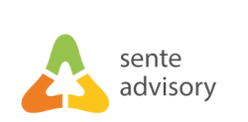
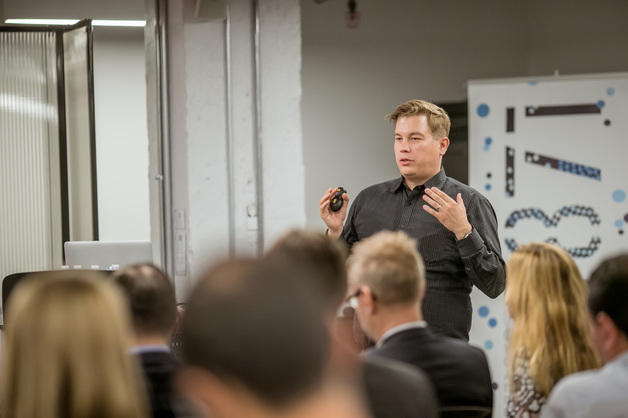
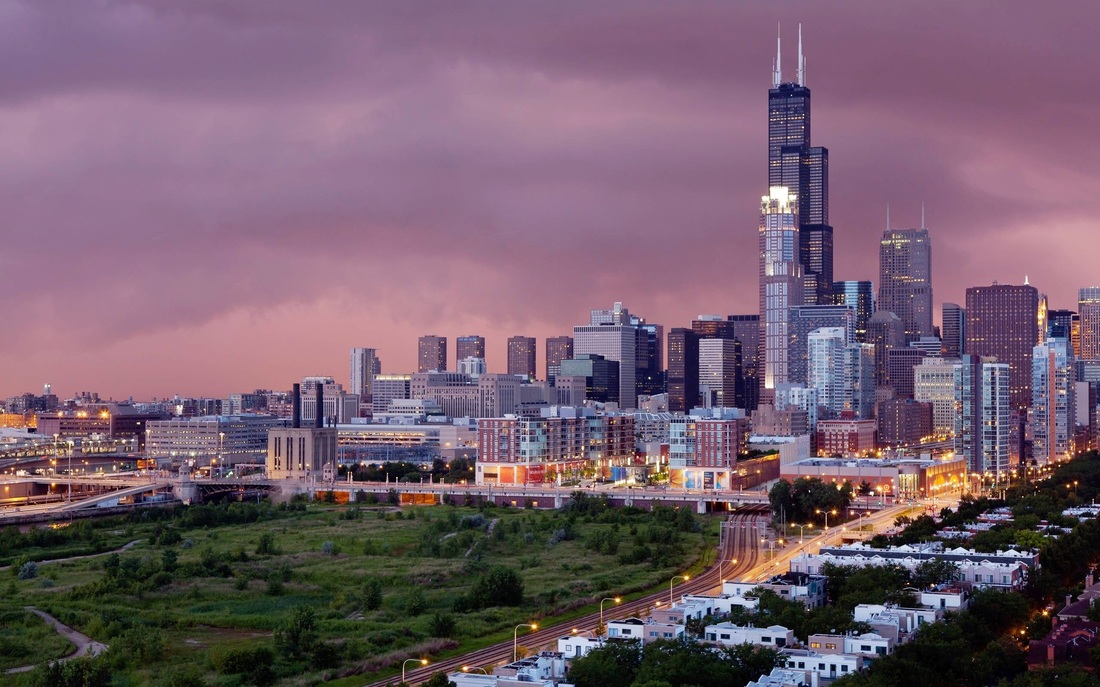
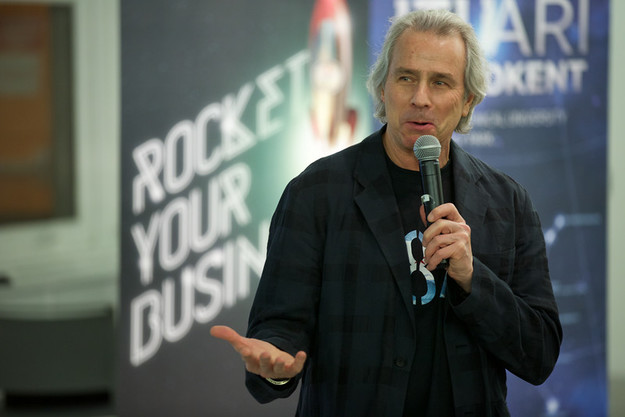
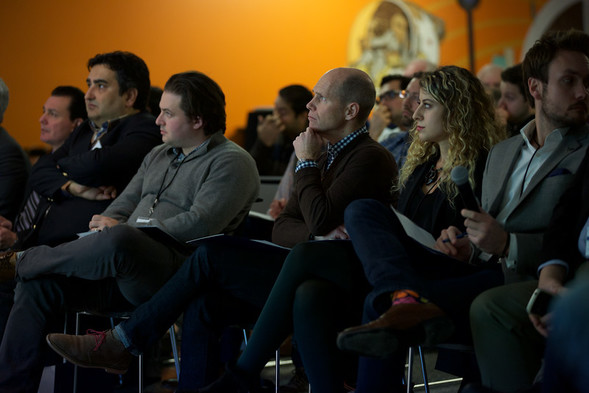
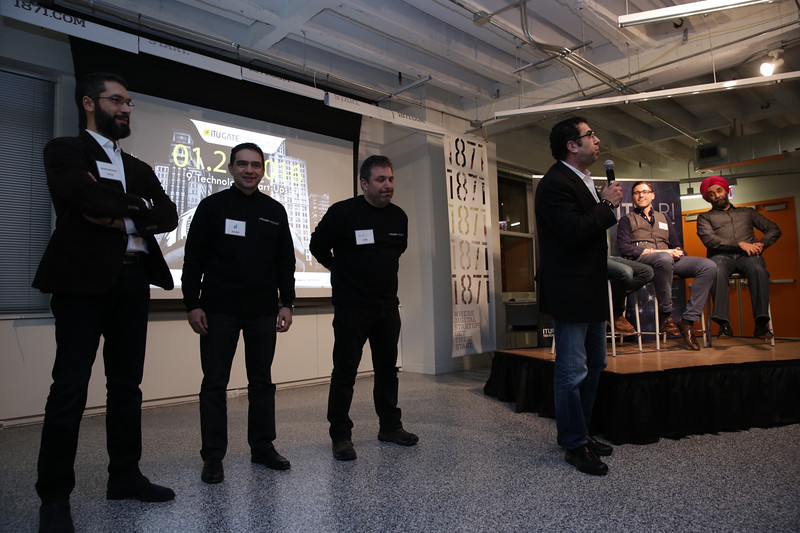
 RSS Feed
RSS Feed
